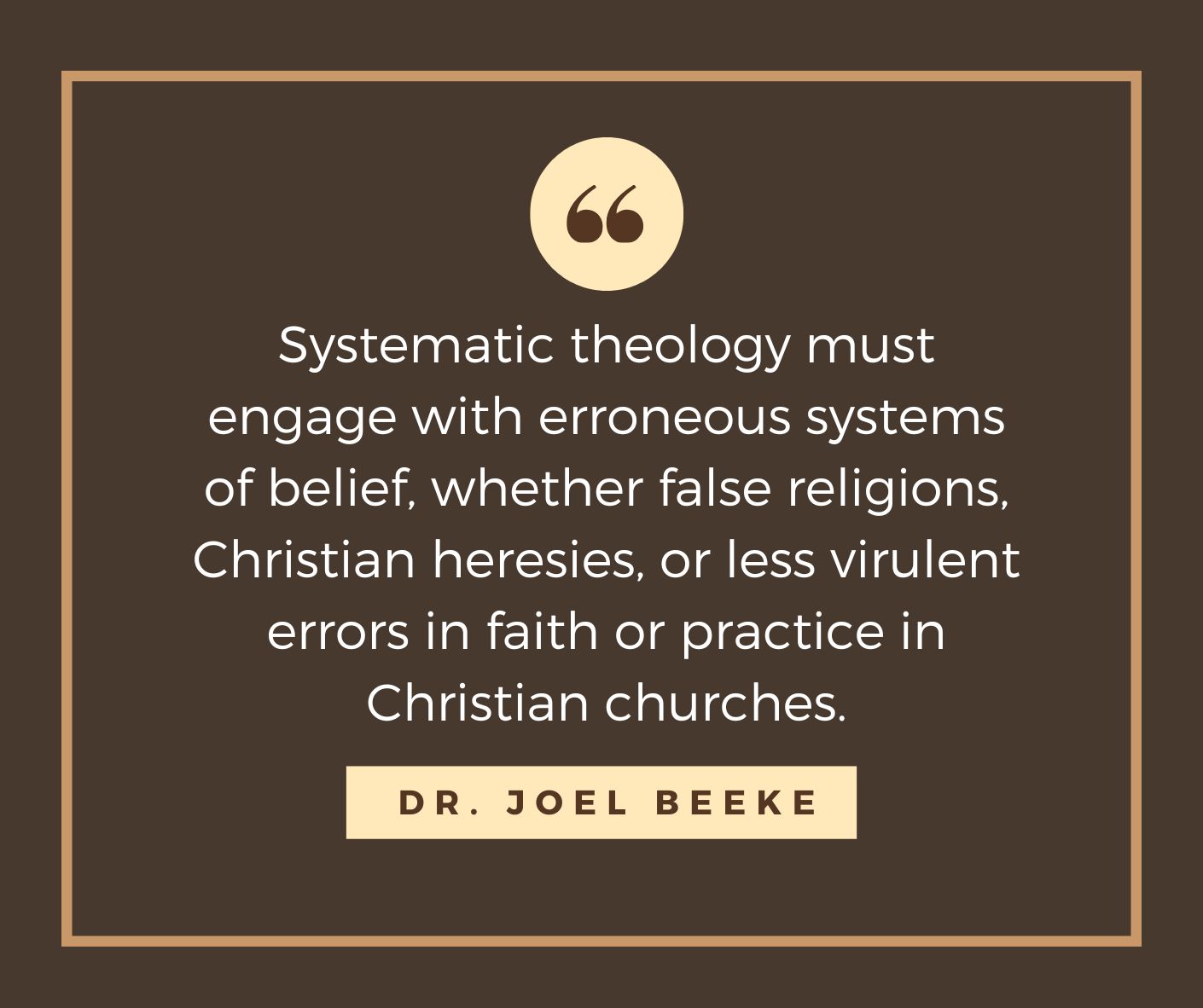
Systematic theology must engage with erroneous systems of belief, whether false religions, Christian heresies, or less virulent errors in faith or practice in Christian churches. This requires patient instruction of those who oppose the truth (2 Tim. 2:24). Jude 3 says, “Beloved, when I gave all diligence to write unto you of the common salvation, it was needful for me to write unto you, and exhort you that ye should earnestly contend for the faith which was once delivered unto the saints.
When the engagement primarily intends to defend Christian doctrine against outside attacks, it is called apologetics, from a Greek word (apologia) meaning “defense” (Acts 22:1). Peter writes, “But sanctify the Lord God in your hearts: and be ready always to give an answer [apologia] to every man that asketh you a reason of the hope that is in you with meekness and fear” (1 Pet. 3:15). As Christianity spread in the ancient Greco-Roman world, it was attacked as an irrational, seditious, and dangerous religion, thus justifying persecution against Christians. Early apologists such as Justin Martyr (c. 100–165) defended the faith against accusations and arguments in order to assert Christianity’s veracity and nobility.
“When the engagement aims to attack false doctrine, it is known as polemics, from a Greek word (polemos) meaning “war” or “battle” (Luke 21:9; cf. Rev. 17:14). An aspect of spiritual warfare is exposing and refuting falsehoods that oppose the truth of God. Systematic theology furnishes important weapons for this warfare, as Paul says, “Though we walk in the flesh, we do not war after the flesh: (for the weapons of our warfare are not carnal, but mighty through God to the pulling down of strong holds;) casting down imaginations, and every high thing that exalteth itself against the knowledge of God, and bringing into captivity every thought to the obedience of Christ” (2 Cor. 10:3–5).
Apologetics and polemics often coalesce, for engagement with hostile systems of belief requires both a strong defense and a strong offense. Ultimately, both depend upon the Bible for authority.”
Excerpt From
Reformed Systematic Theology, Volume 1
Joel R. Beeke








